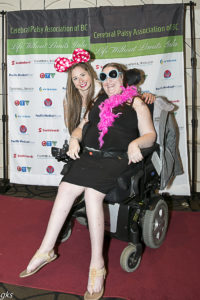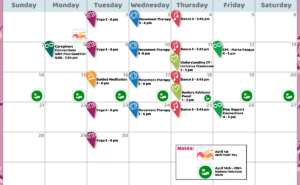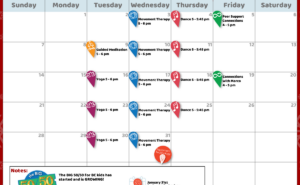The relationship between a caregiver and client is a very delicate one because you are putting a lot of trust in that person to meet your very personal needs in a safe and respectful way.
Imagine you do not have the ability to get in and out of bed. You have this worry in the back of your mind that no one will show up to help you as you lay there waiting. You are completely helpless until they arrive. Try to picture the mental stress it would put on you not knowing if the help you need is going to be there. Thoughts like “If no one comes how will I get out of bed?”, “If no one comes I won’t be able to go to work”, “If she doesn’t come I won’t be able to pee”, and “Geez, I have to pee really bad,” start to cross your mind. In that moment all you can do is hope and wait that help will come because there are times when they don’t.
This is the reality that many people with disabilities face including myself face. Your reality consists of needing help to shower, dress, use the bathroom, cook and clean. In order to get these things done and go about your day you depend on people to assist you. Many people do not realize the steps a person has to take to ensure that he/she receives adequate care.
Assistance with daily living
If someone needs assistance with daily living there are two options to choose from. The first choice is home care. The government will hire a home care company on your behalf and that company will provide you with the care that you need. A schedule and list of care needs will be made and a care aide will come help you with the agreed upon tasks and times. One good thing about this model is a caregiver will show up to your place and help you with what is needed so you don’t have to worry about someone not showing up. Also the caregivers that these companies hire have the required training that is needed for the job.
However, this particular model has some problems as well. Depending on the current demands of the company, they may not be able to accommodate your schedule. If that is the case then you may end up going to bed/getting out of bed super late or super early. These companies are rarely able to be flexible in terms of scheduling, so your ability to be spontaneous is next to none. For example, if you were feeling ill and needed to go to bed early or if you decided you wanted to go out with a friend late, that is not a possibility. Just imagine how limiting that would feel. Another problem is turnover of caregivers. The relationship between a caregiver and client is a very delicate one because you are putting a lot of trust in that person to meet your very personal needs in a safe and respectful way. If they do not care for you in the right way, you risk injury or the possibility of getting sick. My point is, you don’t want just anyone wiping your bum. But the sad truth is you may not have a choice when it comes to home care. For a month you may have a caregiver whom you can trust and rely on, and before you know it you have a different person coming in every day to help you. Talk about the feeling of vulnerability.
People should be able to get the quality of care they need as well as the reassurance that they will be with people they can trust and rely on so they no longer have to worry about if they are able to go about their daily lives.
The need for balance
The second choice is a program called Choices in Supports for Independent Living. (CSIL) In this care model, the individual is able to manage his/her own care. In the beginning the government will do a needs assessment which will determine how much time is needed for any task he/she needs help with. That amount of time is then converted into an amount of money that the individual can use to pay the caregivers that he/she hires. As for many government funded programs, people are rarely given enough money in order to meet their care needs. In that situation it can be very difficult to find caregivers because of the low wages leaving the person to find a balance between the wages the caregivers receive as well as the amount of time needed for care. All too often no balance can be found. If wages are too low it also causes the problem of high turn- over which means that people are constantly struggling to hire and train caregivers which takes a lot of time and energy.
Despite the downfalls of the CSIL program, there are some positive aspects. By being able to hire your own caregivers, you are able to pick people that are a good fit for you in personality as well as work ethic. Also, you are able to make your own schedule that meets your own specific needs, so if something comes up and you want to go to a show that night, you can call them and say, “Hey, can you come later tonight?”
More options are needed
Both these care models have positives and negatives, but people that need caregiving should be left with more options as these models can be very limiting. There is also a direct correlation between the amount of money invested into care by health authorities and the coverage provided When less is invested, there is an insufficient level of care, no matter what model of service delivery is in place. People in these situations should be able to get the quality of care they need as well as the reassurance that they will be with people they can trust and rely on so they no longer have to worry about if they are able to go about their daily lives.

 Programs Calendar
Programs Calendar Programs Calendar
Programs Calendar Programs Calendar
Programs Calendar Programs Calendar
Programs Calendar

